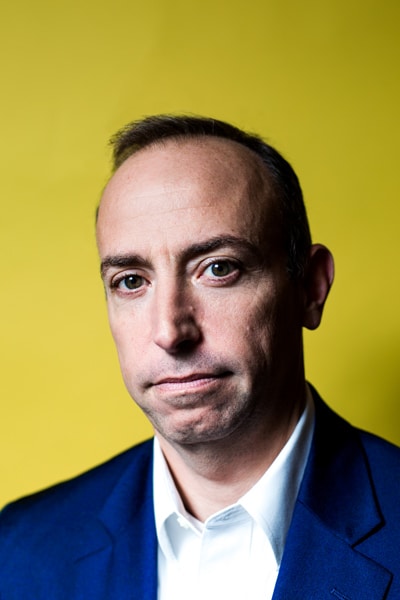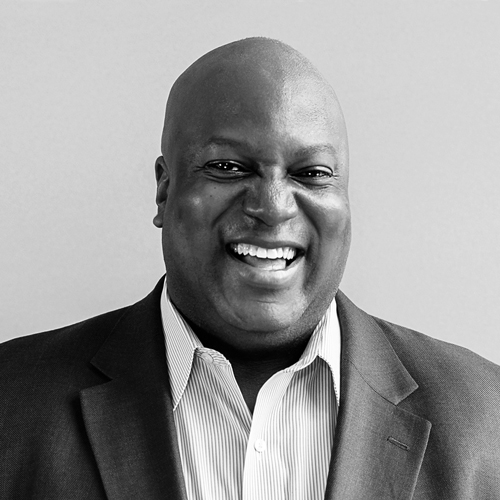A decade ago, Brennan Torregrossa was a freshly minted partner at Dechert, an international law firm, working in their litigation department. It was a good gig—so good that Torregrossa never even considered leaving to go in-house. “I loved being on my two feet in the courtroom,” he says.
Then, in what he calls a fortuitous event, a major client asked him to go in-house for six months to cover the maternity leave of one of their other corporate counsel. Torregrossa was taken not just with the work but also what he describes as “a new world.”
“And not just a new world,” he adds, “but a revolution that was going on as work, power, and responsibility were being transferred from external counsel to internal counsel.”
The ability to engage with a legal issue in its infancy, rather than in its inevitable solution, appealed to him. “I had become increasingly frustrated with the way in which law firms asked us to specialize,” he explains. “The opportunity to be creative, to be a generalist again, to be able to engage with everything from a contract dispute, to a major piece of litigation, to something that may very well never even turn into a dispute—that was really impactful to me.”
This opportunity also helped Torregrossa make an important discovery: he loved being on his feet in the boardroom just as much as in the courtroom. And his time in the courtroom has come very much in handy in his current position as the vice president and associate general counsel of GlaxoSmithKline, one of the world’s largest pharmaceutical companies. There, he works within the company’s Global External Legal Relations Team (GELRT), a group established within GSK roughly 10 years ago with the idea that the “model by which we pay for law firm work was broken.”
“The billable hour needed to be challenged as the right model to pay for legal work,” Torregrossa says, explaining that the GELRT is devoted to engaging and educating legal counsel across the globe in alternative fee arrangements—namely, charging flat fees for various legal services. Torregrossa and his colleagues are tasked with developing expertise on what to pay law firms outside of the billable hour. They share that expertise not just with law firms but also with corporations and organizations around the globe that are looking to get away from the billable hour and pursue alternative fee arrangements.

“I’m an evaluator, a negotiator, and a motivator,” Torregrossa says of his role, which encompasses everything from refining the process by which new fee arrangements are implemented to engaging with other companies and law firms in the transition.
And it’s not an easy transition. Torregrossa mentions often that the billable hour has been the go-to model for more than 100 years; that’s a tough routine to break. “Often, law firms will say, ‘Well, it took us this much time, and if you multiply that by our rates, it should be the price point,’” he says, explaining how his team is working to develop flat-fee metrics for what tasks such as deposition and due diligence should cost. “You need to completely shake up the firm’s notion that payment should be based on the time it took to complete the task.”
Refining those metrics is an ongoing task, made more difficult when factoring in the time, depth, and complexity of various cases. This has proven to be the toughest aspect to convey to the law firms GSK is hoping to convert. “I know this is a challenge,” Torregrossa says. “The process of paying for matters in a way that assumes how things will play out two, three, or five years down the road is very difficult. But if you can build a forty-story building on a flat fee, you can build a complex litigation on a flat fee.”
This is where Torregrossa’s history at firms such as Dechert comes in handy. “One of the most valuable roles I can play is the role of the barometer,” he says. “I know what these things should cost because I’ve not only done them, I’ve billed for them. I’ve sent invoices to clients. I have a very good sense of what it should cost to take a deposition because I’ve taken hundreds of them.”
Torregrossa also brings credibility to these negotiations. “I can say, ‘Look, I was a partner, too. I understand the pressures you’re facing. Let’s find a way to make this win-win so that I can address your concerns and you can address mine,’” he says. He argues that the best way to make the relationship win-win is to align the interests of the client and the law firm with a flat fee—and, if warranted, a success fee for a good result in the legal matter.
After all, there are plenty of benefits to alternative fee arrangements. Torregrossa says that there’s been a dramatic reduction in outside counsel fees and tens of millions of dollars saved over the past decade by adopting flat fees at GSK. He also notes that 80 percent of the company’s current spending is on alternative fee arrangements; contrast that with just a 3 percent spend in 2008. “If you were looking at a bar graph, it would look like a nice set of stairs,” he says. “There was a significant uptick each year. That’s a measure of success.”
Phillips Lytle has partnered with GSK for more than two decades. Tamar Halpern, partner-in-charge of the company’s pharmaceutical litigation team, also notes that billing practices have morphed considerably over those years. “Creativity and trust are the cornerstones of a successful alternative fee arrangement,” she says. “Brennan’s experience as outside counsel and insight into the legal marketplace are invaluable. He is an ideal partner with whom to build unique, cost-effective alternatives to the billable hour.”
Despite the slow movement toward alternative fee arrangements over the past several years, and despite GSK pursuing it longer than most, Torregrossa admits his company has room to grow. “We’re still in this new world,” he says. “I want to get more predictability and more metrics regarding what things should cost.”
GSK has culled a great deal of data from its own auction process, the Outside Counsel Selection Initiative (OCSI). In “a reverse eBay kind of way,” Torregrossa says, the OCSI process finds law firms bidding down on particular pieces of legal work. That’s helped Torregrossa and his team get a better sense of what firms will consider when it comes to pricing. “I would love to find a way to really harness that data so that we can better say from matter to matter what things should really cost.”
DoeLEGAL, Inc. is one of the companies that’s been working with Torregrossa on alternative fee arrangements for some time by providing GSK with their e-billing system. “We appreciate our longtime partnership working closely with GSK and Brennan,” doeLEGAL president and CEO Tom Russo says. “His elevated vision for legal-department requirements and leadership continues to shape the future of legal engagements for all global corporate operations.”
Torregrossa believes that, eventually, the model he and the rest of the GELRT team are working to develop will become the standard. “Five to ten years ago, it was more a push than a pull,” he says. “Now, it’s much more of a pull in the sense that my team members routinely get asked to share their time, their experience, and the templates we’ve created.”
The clock, it seems, is ticking down on the billable hour.
Photos by Gillian Fry
***
DLA Piper:
“As outside counsel, it is gratifying to work with Brennan. Under his leadership, we have strengthened our business relationship with GlaxoSmithKline and continue to provide superior legal services through an innovative financial model.”
—Laura Terrell, Partner
***
Shook, Hardy & Bacon:
“Brennan’s unfailing creativity, innovation and energy are inspiring; he always reminds us how critical it is to adapt to the rapidly changing needs of our clients.”
—Madeline McDonough, Firm Chair


